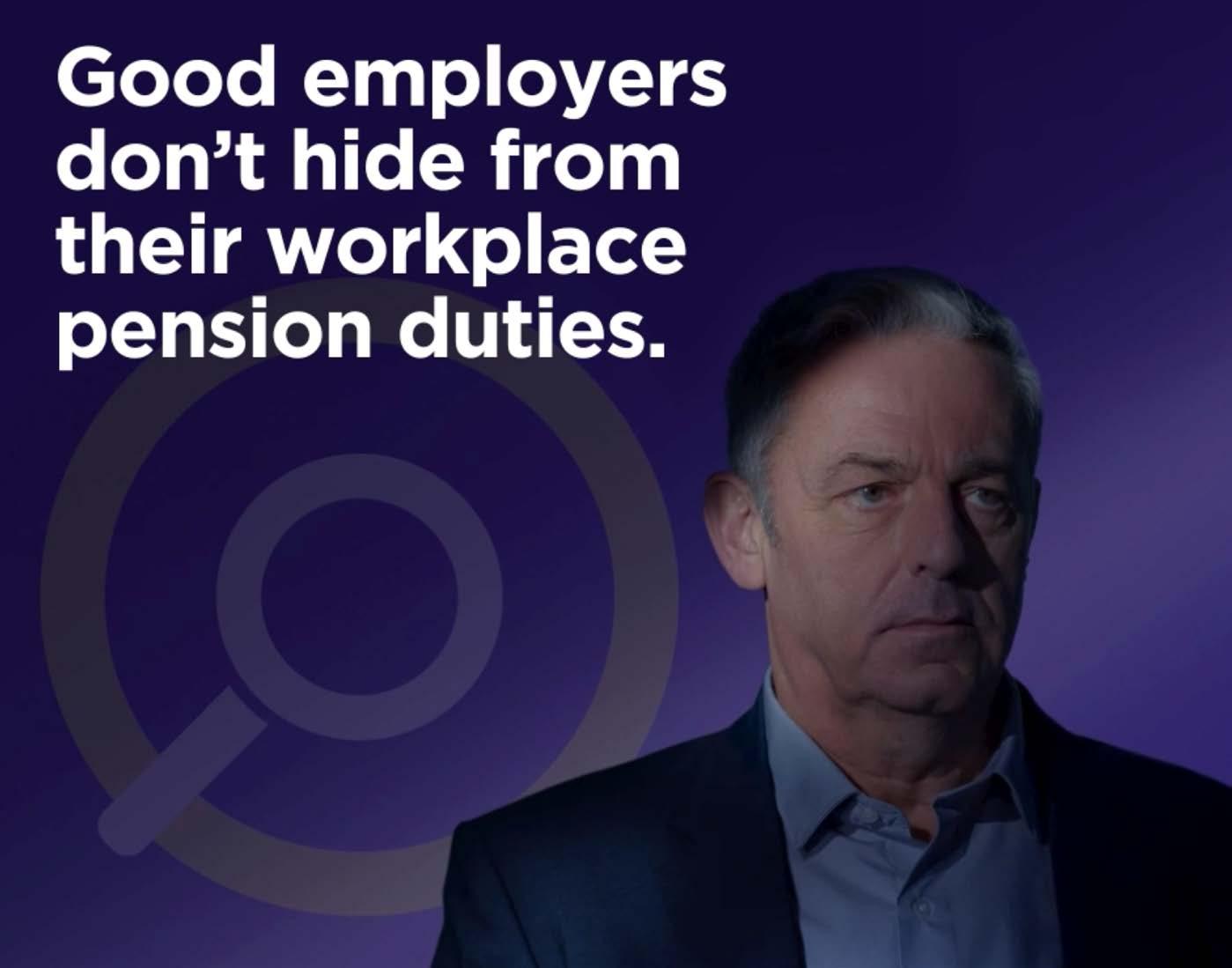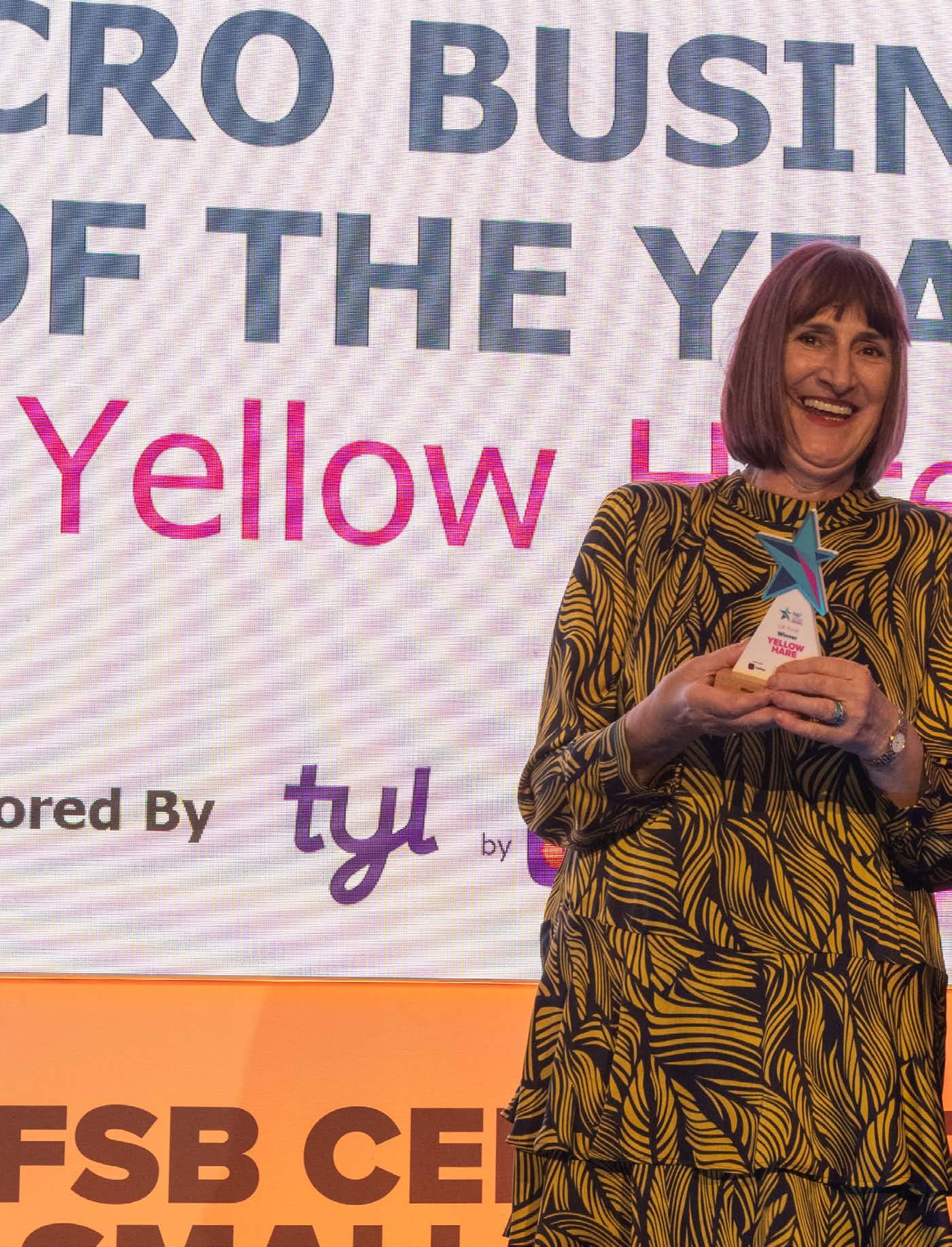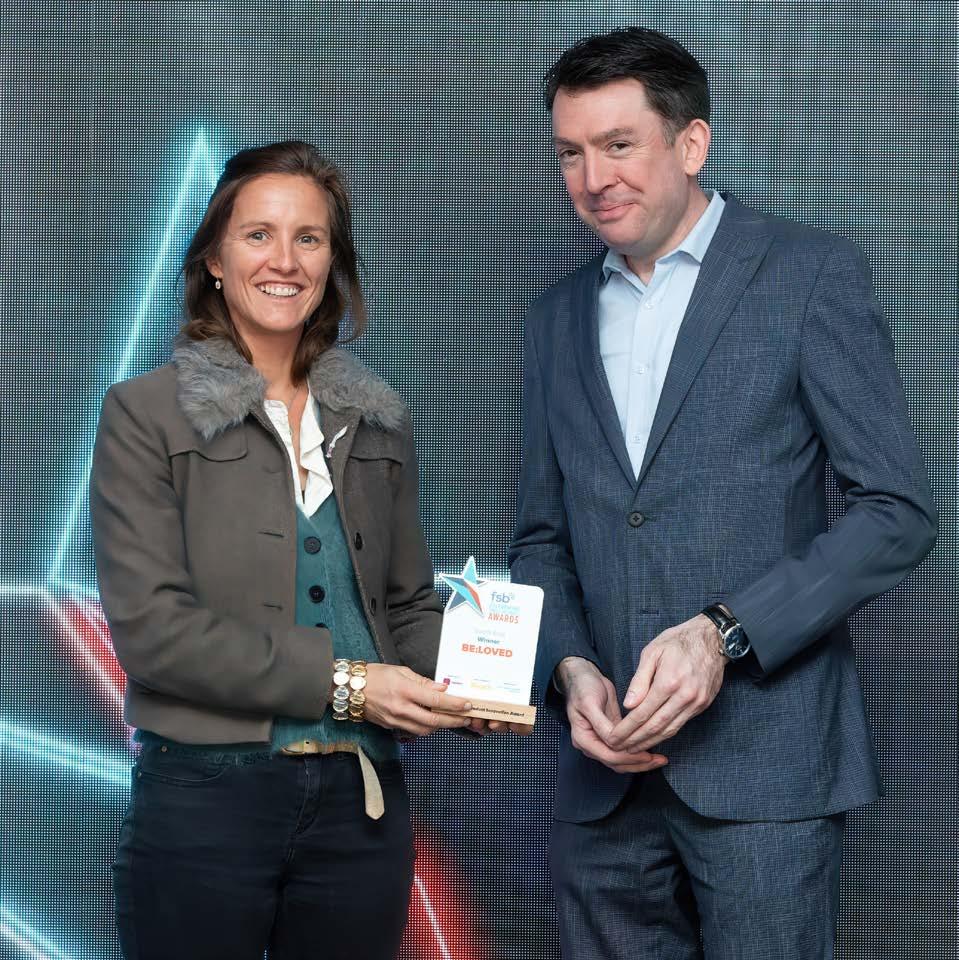





Inside impac t July 2023 fsb.org.uk AN ONLINE MAGAZINE FROM THE FEDERATION OF SMALL BUSINESSES Social marketing How to promote your business Debt recovery Taking back control of your money Going green How to build a sustainability strategy How our 2023 FSB Awards winners have built their small businesses Winning formula
how









social



Contents contents welcome fsb round up podcast weblink video survey 2 fsb.org.uk
media: how to promote your business
opinion: Tina McKenzie to overcome rural business challenges
award winners: sharing strategies for success

how to digitally transform finding finance




sbi






going green

contents fsb.org.uk
data: confidence is coming back
3
GCI is HMRC compliant and FCA authorised and regulated for Consumer Hire. The amount you can save is dependent on your individual tax circumstances. Not all bike brands are available. Please ask for details.
SPEND LIMITS WITH GCI
Cycle now, pay later Save 32-47% No fees or charges Monthly payments Cut commuting costs
NO
THE CYCLE TO WORK SCHEME A KEY EMPLOYEE BENEFIT
Welcome to fsb impact

A few words from Martin McTague National Chair, FSB

Welcome to this special FSB digital magazine – which is designed to equip you with all you need to seize the opportunities ahead.
Watch my short welcome video to learn more about what’s inside and how it can help you grow.
welcome 5 fsb.org.uk
Don’t hide from your workplace pension duties

protect savers and make sure they receive the pensions they are due.
TPR warns that it monitors employers big and small, across all sectors, and that inspection teams are also carrying out onsite visits across the UK this year.
Don’t risk a fine. Check your legal duties today!
Your ongoing duties
If you employ one or more staff, you are an employer and have ongoing AE duties. Staff must be assessed, and if eligible for AE, must be enrolled into a qualifying scheme. You then have an ongoing duty to ensure staff continue to receive the correct contributions fully and on time.
Employers are being urged to fully comply with their automatic enrolment duties – or face consequences.
A hard-hitting campaign from The Pensions Regulator (TPR) has sent a clear message that employers who hide from their pension duties will face enforcement action, including fines.
The majority of employers are doing the right thing for their
staff and have helped make automatic enrolment (AE) a great success. More than 2 million employers have met their AE duties since the launch in 2012, and as a consequence, well over 10.5 million workers have benefitted from this opportunity to save for their retirement.
However, for the small minority of employers that fail to comply, TPR will use its enforcement powers where necessary to
Re-enrolment
Every three years you must give eligible staff who have opted out a fresh opportunity to save by reenrolling them in a scheme. Even if you haven’t re-enrolled staff, you must complete a re-declaration of compliance to confirm you have met your duties.
Check on your full AE duties today by visiting TPR’s employer webpages
advertorial
The term ‘start-up’ can be traced back to the early tech revolution in the 1970s, when a new breed of small businesses with extraordinary growth potential emerged.

In fact, many of today’s global giants began as startups – Amazon, Disney and Google all saw their creators emerge from the humblest of circumstances. In each case, they established their small businesses in a climate where taking risk was the norm and ambition was lauded. And that’s the nature of small businesses, which have shown incredible grit and determination in the face of adversity. They were also the key driver of the recovery from the last economic recession: nine in 10 people who moved from unemployment back into the workplace during that
period of recovery did so through a small firm or self-employment.

The last three years have been challenging for small businesses. Two years of Covid have taken away 500,000 small firms in the UK, while many struggled to weather last year’s energy price crisis.
Now, we are seeing that small firms may be about to turn the corner and rebound. Our latest Small Business Index shows a strong recovery in confidence among small businesses in the first quarter of 2023, at -2.8 points – up from -45.8 points in the last quarter of 2022. With our research providing a glimmer of hope that things are looking up, this needs to be the summer where we start to accelerate the journey to recovery.
Turning the corner
Tina McKenzie, Policy & Advocacy Chair, FSB
Our message to policymakers is clear: think small first, encourage start-ups and

opinion
7 fsb.org.uk
round up
The latest small business news, developments and announcements…
Emission zone win for FSB London
DIVERSITY
FSB’s Emelia Quist named 2023 Empower Role Model
FSB’s Head of Policy Research, Emelia Quist, has been named as a trailblazing executive for people of colour in business, in the 2023 Empower 100 Executive Role Models list.

As FSB Head of Policy Research, Emelia oversees all areas of diversity advocacy work, particularly on ethnic minority entrepreneurship, benefitting more than five million UK small businesses and the self-employed. Her work also contributes to small businesses’ workplace diversity and local community cohesion.
Read more here
The Mayor of London, Sadiq Khan, has heeded FSB’s calls for support to more small businesses affected by an expansion of the capital’s UltraLow Emission Zone (ULEZ). A scrappage scheme for vehicles in-scope for ULEZ charging has been expanded to all small businesses in Greater London. The original scheme was planned to cover only micro businesses, with fewer than 10 employees. Following effective campaigning by FSB and its members with key decision
TOURISM
makers and in the media, the scheme will now provide vital financial support as well as a grace period to allow small businesses to adapt. However, FSB remains concerned that the expansion of ULEZ in August will be too soon for some small firms.
The scrappage scheme also does not cover small businesses just outside the London boundary that need to drive into parts of the capital.
FSB launches hospitality ‘Sunshine List’
With recent data from the Small Business Index showing there has been a rebound in confidence in accommodation and food services of late, FSB has launched a ‘Sunshine List’ of moves it would like to see made to help firms capitalise on the tourism season.

The list sets out a number of areas for policymakers to focus on, including fixing
potholes to ensure transport runs smoothly, making parking accessible on high streets, boosting park and ride schemes and raising the VAT threshold from £85,000 to £100,000.
8 fsb.org.uk news
ENVIRONMENT
Read more news here Read more here
‘Drive Wales Forward’ report launched
FSB Wales has launched a new report, Different Routes, Same Destination – and calls for the Welsh Government to ensure a positive strategy for the future of roads in Wales.
The report aims to outline a constructive vision for roads within a sustainable development framework that accounts for the economic activity promoted by roads, and the value that they bring through their
facilitation of trade, investment and business travel.
Following the outcomes of the Welsh Government’s Roads Review, this new report calls for the development of opportunities for new infrastructure projects that balance sustainability goals, to ensure socio-economic benefits are not lost.

BIRTHDAY HONOURS
Honours for two FSB leading lights
FSB’s UK Policy & Advocacy Chair Tina McKenzie has been awarded an MBE in the King’s Birthday Honours.
Tina, who was previously FSB’s Northern Ireland Policy Chair, received the honour for services to the Norther Ireland economy.
Meanwhile, FSB’s former National Chair Mike Cherry has been awarded a CBE for services to business and international trade.
Mike has spent many years as an FSB volunteer, including a six-year term as National Chair that concluded last year.
Read more news here Read the report here
SUSTAINABILITY
FSB welcomes delay on Deposit Return Scheme

Scotland’s Deposit Return Scheme has been delayed until at least October 2025, in a move welcomed by FSB. The recycling scheme had previously been due to launch next March.
Andrew McRae, FSB Scotland Policy Chair, said: “The delay until a UK-wide scheme has taken shape will give much-needed breathing space for the small
producers and retailers who have spent months wrestling with the implications for their operations.
“Now, as focus turns to what will replace the scheme, it’s critically important that we do not rush into any decisions. The issues that have plagued those small businesses on whom government will be relying to deliver and run any replacement scheme must be
listened to and addressed.
“The Scottish and UK Governments must work with each other and with all interested parties to ensure the successful rollout of a scheme that works for business, consumers and the environment.”
Read more news here
9 fsb.org.uk news TRANSPORT
How to…

Promote your business using social media

With more than two-thirds of the population on Facebook, 58 million businesses active on LinkedIn and 30 million people on Instagram, social media is more popular than ever. So, how can you use social channels to promote your business and reach new audiences? Here are five simple steps from our recent podcast, ‘Social for small businesses…’
Launch the podcast now to listen to the full episode
You can hear more tips on seizing the potential of social and more detail on exactly how to deploy these five steps by listening to our podcast, ‘Social for small businesses’.
social media 10 fsb.org.uk
Know what you







Before you do anything on social, make sure you have a very clear idea of who your audience is and what you want to talk to them about. That’s because different audiences are more prominent on different channels. Also think about how your business can help your target audience and what problem you can solve for them.






appealing and useful to the audience – so more people will want to view and linger on it. Also, complete your bio using keywords – the obvious words people would use to search for a business like yours in Google. And add your location if you are a local business! 3








It can be tricky on Facebook in particular to get ‘reach’ without paid ads. However, Facebook groups and LinkedIn discussion groups that are relevant to your business offering can be a good way to spread the word. If you’re a local business, then local area/town/village groups are good. If your target market is mums, there are lots of mums groups – ditto female groups for lifestyle products. Sharing your posts into relevant groups will supercharge your reach.









Measure and adapt…

Use analytics to learn and evolve – both the analytics provided on the social platform, and Google Analytics. It’s so important to see what platform is driving traffic to your website, so you don’t waste time with the ones that aren’t working.




Focus on quality over quantity
You don’t need massive numbers to get new customers or clients – just 500 followers on Instagram or 300 on Facebook can really help you grow. So make your posts as useful as possible rather than spamming the audience and focus on your core offering. A small but genuinely interested audience is better than a big one that ignores your posts!
1
social media 11 fsb.org.uk
Debt recovery Q&A
FSB estimates 50,000 small businesses close due to late payments every year. So, how can you ensure you get the money owed to you?
Being owed money as a small business can put you under huge pressure when paying your own bills, suppliers and staff. It can cause massive stress for you and your family. And it’s not fair.
However, there are steps you can take to chase down money –starting with this helpful Q&A guide on the options open to you…
QWhat can I do if a client won’t pay?


A: Clear communication is often all it takes to settle an invoice, which is why late payment letters are so important in the debt recovery process. You should have a clear policy in place for overdue payments, such as: Following up non-payments with a friendly letter, email or phone call. Reminding your clients about the payment terms in your contract. Applying interest to encourage prompt payments. Advising your client that you’ll be pausing all future work until invoices are paid.
Q What is a letter before action?

A: A letter before action warns the late payer that if payment is not made, you’ll be willing to take legal action and the letter is the first step in the process. It’s sent when you’ve already taken steps to try and recover the debt, such as frequent phone calls, adding interest, offering payment plans and sending late payment demands. You can access a free template through FSB Debt Recovery on the online Legal Hub.
Q

What’s a late payment demand?


A: Unlike a letter before action, which warns of imminent legal action if no payment is made, a late payment demand lets you claim interest and compensation under the Late Payment of Commercial Debts (Interest) Act 1998 in addition to the principal sum.

12 fsb.org.uk debt recovery
Click to get more help!



FSB’s debt recovery experts are just a phone call or click away to advise you on further steps you can take – whether you’re dealing with a one-off customer or fighting the tactics of a regular late payer. Click to get more help!
Q How much interest can I charge?

A: In some cases, you can add charges in line with Government legislation, which says you can charge interest and debt recovery fees on late commercial payments –at up to 8% interest plus the Bank of England base rate on late payments. Here is a late payment interest calculator provided by the Small Business Commissioner.
Q Is there a time limit for pursuing an old invoice before I have to write it off as a bad debt?
A: Debt claims must be brought within six years of the sums falling due or, if it occurred later, the debtor’s last acknowledgment of the debt – otherwise they will be statute-barred and become unenforceable. At that point, they should be written off as a bad debt. Knowing exactly who your customers are and what their credit rating is, and having a physical address to send legal documents to, are vital steps every business should take to reduce complications going forward.
13 fsb.org.uk debt recovery
Finding finance remains vital for small business growth
A recent report by the British Business Bank highlights that external finance remains a vital resource for small businesses as they navigate uncertain times. But how those SMEs access that finance continues to be an issue, says John
The Small Business Finance Markets 2022/23 report examines the relationship between finance and innovation in the small business landscape. It identifies innovation as central to UK SMEs’ long-term growth and recognises this can require external funding. It also shows the impact this funding can have – 66 per cent of SME innovators use finance, compared with 58 per cent of all companies. However, where owners find finance and its ease of access continues to trouble smaller businesses at all life stages.
Lending restrictions
The recent collapse of Silicon Valley Bank raised concerns over contagion in the banking system. The chances of another global banking crisis appear low, but ongoing economic uncertainty and interest rate rises have resulted in mainstream lenders restricting small and mediumsized businesses’ access to funds, particularly in retail, hospitality and wholesale.
Loans from large banks to small businesses virtually disappeared between 2008
and 2011 after the banking crisis, and loans from small banks also fell dramatically. In the US, commercial loans to small businesses between Q2 2008 and Q2 2010 fell by $40 billion. In the UK, a Department for Business, Innovation & Skills report found firms that applied for bank debt in 2007–09 were more likely to be rejected than firms with the same level of risk that applied for bank debt in 2001–04.
A new funding landscape
This struggle to secure finance from traditional lenders created a gap in the market into which alternative lenders, fintech operators and challenger banks advanced, fundamentally altering the SME financing landscape. Across Europe, the alternative finance sector is now provides €22 billion of funding to businesses – 60 per cent of it in the UK market.
Launched in 2008, Capify is an alternative finance provider that has continued to serve the specialist needs of SMEs over the last 15 years – empowering them to access finance at a time
 Rozenbroek
Rozenbroek
when traditional banks were tightening their lending.
Our Capify Q4 2022 Confidence Survey revealed that 58 per cent of SME respondents were not confident of securing finance from their traditional banking partners. Little wonder, then, that the funding landscape has evolved to meet these needs. In 2022, £35.5 billion of SME lending came from challenger and specialist banks. This exceeded lending by the major banks during the period, giving challengers and specialists a 55 per cent share of the market. The world has changed since 2008. Regulation is tighter and levels of capitalisation in the banking system are more robust. But the issues around SME access to finance prevail. As many banks face a crisis of confidence and a challenge to operating models, a growing number of SME owners are looking to alternative sources of capital. At Capify, we will be there to support them.
JOHN ROZENBROEK, COO/CFO, Capify
advertorial
Fast, flexible funding for your business
Helping SMEs thrive and prosper
At Capify we understand the unique challenges faced by SMEs like yours. That’s why we offer loans to unlock the growth opportunities in your business. With business financing from £5,000 - £500,000, we provide a fast, straight-forward alternative to traditional lenders.


Over the past fifteen years, we have helped thousands of SMEs access the funding they need to grow and prosper. If you have exciting and ambitious growth plans or want to maintain your existing success, we’re here to offer a hand.
At Capify we offer a range of business loans to help support small businesses throughout their growth journey. We consider all credit profiles and all our loan applications are looked at and decided by a human, not a computer algorithm. Many of the businesses we fund had previously been turned away by their bank.
If you'd like to find out how much finance you qualify for with Capify, check your eligibility online
Visit capify.co.uk/fsb or call us on 0330 818 7078
Digital download
1 Delivering a bet ter customer experience
Many of the technological advances in recent years –such as e-commerce shopping and automated, personalised marketing – have been designed to deliver benefits to consumers. They can make their experience easier, faster and more tailored. When we say customer experience, we’re not just talking about a customer who came to your website and made a purchase. Tech can improve all interactions and experiences your customer has with your business throughout the entire customer journey.
Digital transformation might feel expensive and difficult to understand. But deploying digital or cloud-based tech can take your business to the next level, helping you improve processes, find and retain customers, and grow.

2 Better collaboration –and productivity
One of the things the pandemic taught us is that using digital technology – such as video calls, resource planning apps and messaging tools – can improve collaboration. That, in turn, can boost operational efficiency, making it faster and easier for staff to complete tasks and ensuring all the right people are involved. Make sure your staff are linked up to collaborate effectively. It can also improve transparency in the workplace and make staff feel more satisfied and engaged.

digital transformations 16 fsb.org.uk
3 Automating manual tasks to save time and money
In the fast-paced business world, automating tedious tasks has become indispensable for businesses – cutting time spent on things that don’t really add value, managing important data and reducing human error. Digital tools make it easier for businesses to manage tedious, repetitive tasks and business processes. From maintaining staff attendance records and calculating salaries and inventory management, to updating customers’ data and automating email and marketing campaigns, there are plenty of tools to help.
4 Making data-based business decisions


Collecting customer data and analysing trends can help you make wellinformed business decisions. There are many analytics tools that help online businesses track the performance of their websites, advertising campaigns and email campaigns. And, by gathering customer data, you can begin to understand what your customers want and when they want it – and adjust your stock buying, purchasing channels, advertising and offers accordingly.
Listen to our podcast now
Hear more about how technology can help make your small business more efficient – and help you grow – by listening to our ‘Digital transformation for small businesses’ podcast.
digital transformations 17 fsb.org.uk
award winners
ultimate example of an


FSB Celebrating Small Business Awards 2023


winner hailed for her “huge global impact”…

Kirsty Smitten (right), CEO and founder of Sheffield drug development spin-out business MetalloBio Limited, has been hailed for her ingenuity and her dedication to saving lives after scooping the Entrepreneur of the Year award at the FSB Celebrating Small Business Awards 2023 UK final.

18 fsb.org.uk
entrepreneur”
“The
Following her PhD at the University of Sheffield, Kirsty co-founded MetalloBio to develop a new antimicrobial platform technology that both prevents and treats antimicrobial-resistant infections.
In a short space of time, she has managed to develop the technology up to the preclinical and commercially ready stages, and successfully raised more than £1m in grant funding and £1m in equity investment for the business.

FSB National Chair Martin McTague said: “Kirsty is the ultimate example of an entrepreneur. Her impassioned drive to save lives has seen her excel in enterprise in an incredibly short time. Like so many UK entrepreneurs, Kirsty has created and developed a company that has a huge global impact. She is a supreme model of what women in STEM enterprise can and do achieve.
On receiving her award at the event, which celebrates the achievements of the UK’s


5.5 million small businesses and self-employed, Kirsty said: “In my PhD I made a new class of antibiotics. A new class of antibiotics hasn’t reached the clinic in over 35 years. People ask me why I do what I do, and it’s because I want to save lives, not because I want to make money. If I did, I’d have gone into oncology.”
Martin McTague added that Kirsty’s accomplishments shine a spotlight on why it’s crucial that UK entrepreneurs have the right government support –Kirsty herself being a previous Innovate UK Young Innovator.



“The world would be a poorer place in terms of health, economy and science without the means to encourage and support this kind of entrepreneurial innovation,” he said.

fsb.org.uk
award winners
award winners
Yellow Hare, Isle of Tiree
Winner of the Microbusiness of the Year Award

This small (just six metres by three metres) licensed cafe and gift shop, located at the ferry terminal on the Inner Hebridean Isle of Tiree, opened in 2018 as the island’s first dedicated roast coffee shop and public launderette. When the pandemic hit in 2020, the fledgling business had no reserves but pivoted to selling ‘bake boxes’ mailed to customers’ doors. Like many small businesses, staffing has been an issue in recent years, but Yellow Hare has been creative in its recruitment strategy – even taking on holidaymakers. In four years of trading, turnover has tripled.
Showcasing success

Other category award winners at the FSB
Celebrating Small Business Awards
2023 included an innovative pet natural wellbeing business, a successful fast food start-up that blends Scottish and Dutch street food, and a tiny café/launderette…

ABERDAM Dutch Fries, Aberdeen Winner of the Start-up Business of the Year Award


This start-up sprung from the team co-organising an outdoor street food event that aimed to help local street food traders get back on their feet after suffering financial losses due to the pandemic. The team came up with a Dutch fries concept, taking inspiration from the fries stalls of Amsterdam – a high-volume product with
an untapped market in Scotland. Launched using £5,000 on a credit card and borrowed equipment – and with menu development, graphic design, branding and marketing all done by the founders – first-year turnover was £490,000. The business is now forecasted to achieve £1.4m in revenue at the end of April 2023.
20 fsb.org.uk
Read, watch and learn more…

You can learn more about all of this year’s winners, read their stories and watch videos from the awards night at fsbawards.co.uk
The full list of winners
award winners
Be:Loved, Hurley
Winner of the Business & Product Innovation Award
Be:Loved is an innovative pet wellness brand that creates natural, sustainable and ethical pet products. Inspired by an old farming family heirloom – a recipe book full of farmhouse remedies for farm stock using nothing but nature’s harvest – the business’s range of products includes calming balms, soothing salves, scented shampoo bars and spritzes to alleviate sore paws and nourish coats. The brand began trialling in 2018, before soft launching in 2020 with the backing of UK distributors. Using market insights to improve the ranges, a product development pipeline is now in place, with ambitions to export to the EU and North America markets.
Diversity and Inclusion Award
Winner: BE.Xcellence CIC, Cardiff
Family Business of the Year Award
Winner: Hale Place Care Solutions, Tonbridge
Microbusiness of the Year Award
Winner: Yellow Hare, Isle of Tiree
Service Excellence Award
Winner: CaliPro Software LTD, Leicester
Exporter of the Year
Winner: Creative Nature, West Molesey
Start-up Business of the Year
Winner: ABERDAM Dutch Fries, Aberdeen
Larger Small Business of the Year (10-100 employees)
Winner: Alt Labs, Middlesbrough
Self-Employed/Freelancer of the Year
Winner: Chris Garland
Training, Knutsford
Sustainability Award
Winner: EGO Technology Ltd., Burton-on-Trent
Business & Product Innovation Award

Winner: Be:Loved, Hurley
Young Entrepreneur of the Year (aged 30 and under) and overall UK winner 2023
Winner: Kirsty Smitten, Sheffield

21 fsb.org.uk
A smart meter could help you get more control over your business’ energy costs
With the economic outlook remaining tough, small business owners have adopted more cost saving working practices to reduce their energy usage to help them control their finances. This has included embracing new technology and encouraging staff to embrace more energy-friendly behaviours. Research Smart Energy GB has issued shows that 29% of businesses asked turned down the temperature on their boiler, nearly a third use energyefficient lightbulbs as the norm and 20% went ‘paper free’.1
Getting a smart meter is one step business owners can take
40%
of customers are talking about rising costs and soaring energy prices with local businesses4 –Watch to find out more about how our conversations are changing

Smart meter benefits for small businesses
1 Accurate billing: smart meters put an end to manual meter readings and estimated bills – this means you only pay for the energy you use, which can help with managing cashflow
2 Control: thanks to the data they provide, smart meters can help you monitor your energy usage, give you more control over your business’ energy spend and identify where cost savings could be made
3 Access to historic energy usage data: small businesses with a smart meter are able to request free access to 12 months of smart meter data from their energy supplier, which can help you with budgeting for future bills, and help reduce bill shock
50% of meters in small businesses are smart or advanced meters3
to get more control over their business’ energy use and costs. They’re currently available to small businesses across Great Britain and installations are happening now – over half of all meters are already smart or advanced meters.3
Smart meters measure energy use in near-real time, sending automatic meter readings directly and securely to your energy supplier. They put you in greater control and give you visibility of your energy use, which can help with managing finances and cashflow.
The smart meter rollout is also helping us move to a more efficient, cleaner and more responsive energy system, enabling us to rely less on imported fossil fuels such as oil and gas, and increase our use of cheaper, greener energy like wind and solar power.
To learn more about the benefits of having a smart meter for your business, or to request one from your energy supplier, visit the Smart Energy GB Small Business Hub.
advertorial
OVER
Recent research of small business owners found:
89% agree that investing in new technology has been an effective way of reducing daily costs1
41% of those who have a smart meter at home and at work said the data they get from it has helped them to better control their energy usage and bills2
35% said it was useful for planning their future cashflow2

78% say it is a bonus that a lot of their energy saving measures are having a positive effect on the environment1
1 OnePoll research 500 small business owners across Great Britain, January 2023
2 OnePoll research 500 small business owners across Great Britain, April 2023
3 Smart Meter Statistics in Great Britain: Quarterly Report to end March 2023, Department for Energy Security and Net Zero, published 25 May 2023
4 OnePoll research 2000 consumers across Great Britain, April 2023

Small business confidence bounces back
Following a turbulent few years – during which small businesses have been battered by the impacts of Covid-19, Brexit, the energy crisis, rising interest rates and a rising cost of doing business –small business confidence may finally be returning.
FSB’s most recent UK Small Business Index (SBI) revealed firms’ confidence recovered strongly between Q4 2022 and
Q1 2023, albeit remaining in lightly negative territory. Confidence rose to -2.8 in Q1 2023, up 43 points from Q4 2022. Two in five small firms said they expect their sales to increase in the next quarter.
Despite the increased optimism, firms remain cautious of rising costs – with a record 92% of small firms saying costs in Q1 were higher than in the same quarter last year.
Take the survey


You can share your own experiences and business outlook by taking part in the next Small Business Index survey.
However, Martin McTague, FSB’s National Chair, said the results “show that small firms may be about to turn the corner”, adding that all the major industry sectors tracked in the SBI saw improvements in their confidence ratings, with wholesale and retail, accommodation and food, manufacturing, and information and communication all seeing major increases.
SBI data 24 fsb.org.uk
Small business confidence improved by 43 points between Q4 2022 and Q1 2023, the third-largest improvement on record
Small business confidence by sector

SBI data 25 fsb.org.uk r
5 0 -5 -10 -15 -20 -25 -30 -35 -40 -45 -50 Q2 2022 Q3 2022 Q3 2022 Q1 2023 +27.4 -14.4 -14.7 -17.8 -25.2 +14.9 -30 -25 -20 -15 -10 -5 0 5 10 15 20 25 30 Construction Professional, scientific & technical Manufacturing Information & communication Accommodation & food service activities Wholesale and retail -45.8 -35.9 -24.7 -2.8
green
While the road to net zero may seem like a long and bumpy one, the truth is there are some really simple steps you can take to make your small business more sustainable…
For many years, the mantra around making your small business green has echoed Kermit’s famous song ‘It’s not easy being green’ – with most feeling it’s expensive and difficult to do.


However, with consumers increasingly choosing environmentally conscious firms, focusing on the following areas could help you save money, protect the planet and gain a competitive advantage.
Listen to our recent podcast
‘Why and how small businesses can offset their carbon emissions’

26 fsb.org.uk
Save energy
Switch to energy-saving LED light bulbs to help consumption Motion sensor lights also help as they only come on when triggered Switching appliances off rather than leaving them on standby can dramatically decrease energy consumption.
Save water
Think about replacing your taps with spray taps to reduce the amount of water coming out without diminishing pressure quality
Switch to dual-flush toilets – this could save thousands of litres of water a year and save you money
Educate your team to save water – not just at work but also in their everyday habits
If feasible, harvest rainwater.
Reduce waste
Work with your suppliers to remove unnecessary packaging from your products
Switch from paper to digital wherever you can
Join a circular economy club that connects you to businesses that might be interested in using and buying your waste Consult the government list of approved waste buyers to see if any of your waste can be sold.
Go digital
Streamline your bookkeeping processes with HMRC approved accountancy software to digitise your invoices, expenses and more
Sign paperwork digitally with apps

Use online tools to transfer large files
Use e-tickets for events instead of printed tickets
going green
Cut vehicle use
Road traffic and vehicle use can be reduced on an individual and business level. Cars and vans are important, sometimes essential, for business operations. However, avoiding unnecessary trips, shopping locally, and grouping deliveries are beneficial.
Find out more!
To help you start or speed up making your business more environmentally friendly, FSB has produced a guide providing more information on lots of the issues covered here and other ways you can ‘go green’, including through sustainable procurement, food sustainability and purchasing for sustainability.

Download
‘How to get started with sustainability’ for free.

27 fsb.org.uk
Visit The FSB Small business sustainability hub

START UP. SCALE UP. DELL FOR STARTUPS *Payment solutions provided and serviced by Dell Financial Services L.L.C. or its affiliate or designee (“DFS”) for qualified customers. Offers may not be available or may vary in certain countries. Where available offers may be changed without notice and are subject to product availability, applicable law, credit approval, documentation provided by and acceptable to DFS and may be subject to minimum transaction size. Offers not available for personal, family or household use. Dell Technologies and the Dell Technologies logo are trademarks of Dell Inc. Restrictions and additional requirements may apply to transactions with governmental or public entities. FAIR MARKET VALUE (“FMV”) LEASE: At the end of the initial FMV Lease term, lessee may 1) purchase the equipment for the then FMV, 2) renew the lease or 3) return the equipment to DFS. Copyright © 2022 Dell Inc. or its subsidiaries. All Rights Reserved. Dell Technologies, Dell, EMC, Dell EMC and other trademarks are trademarks of Dell Inc. or its subsidiaries. Other trademarks may be trademarks of their respective owners. Powered by Intel® Your dedicated startup tech advisor will get to know your business needs and goals and deliver customised scalable tech solutions. Startup Expertise End-to-end service and support including top-rated technology, exclusive member pricing and Pay as You Go solutions from Dell Financial Services.* Service & Technology From client systems to infrastructure hardware, we have your stack covered with the best in scalable technology.
Smarter.
Faster Visit Dell.com/ukstartups to join today.
Scale
Scale
Rural protection
Rural firms across the UK are being hampered by a series of hurdles – impacting productivity and therefore growth. So, what can be done to help?
The issue
A recent FSB report has revealed that small firms in rural locations are hitting a number of hurdles when it comes to doing business – creating a £43 billion rural-urban productivity deficit.
Despite the government bringing in a ‘10-pointplan for rural productivity’ in 2015, the new report – The Growth Belt: Supporting Rural Small Businesses – reveals little progress has been made in breaking down barriers to growth for rural firms.
The findings show that in 2022, only 43% of rural firms planned to grow, compared to 49% in urban areas. Additionally, 37% of rural businesses reported a 10% increase in operating costs.
The challenges
The report reveals that some of the biggest challenges hampering rural firms are inadequate transport, unreliable broadband and rising energy costs.
Some 32% of rural firms report internet reliability issues, compared with 17% of urban businesses.
Learn more
Download The Growth Belt: Supporting Rural Small Businesses for free to learn more about the pressures facing rural firms and how they can be fixed.
Consequently, 14% of rural businesses say slow internet speeds affect their ability to contact customers, while 11% believe their competitiveness is hindered by poor connectivity. Poor broadband also leads to a 10% loss in rural business sales.

The response
In response to these issues, FSB is calling for the government to act in a number of ways. It would like the government to update the Universal Service Obligation minimum requirements for upload and download speeds to improve broadband connectivity.
It is also asking the government to raise the basic VAT taxable turnover threshold from £85,000 to £100,000, increasing England’s Small Business Rate Relief threshold to £25,000 from £12,000 and ensuring electric vehicle charging points are available in rural UK areas by 2030.
And it wants local councils in England to appoint Local Business Champions – to help better business engagement and funding applications.
rural business challenges 29 fsb.org.uk
right
Finding funding the
Find out more
You can learn more about these funding options – and speak to an expert or even apply for funding –by visiting the FSB Funding Platform.
As small businesses finally turn their attention away from the pandemic and towards what will hopefully be a period of growth, many are looking for funding to help. But, with new challenges to face – such as high inflation, increased interest rates and rising costs – choosing the right type of funding is essential. Here’s a guide to the different types:
finding funding
Our quick guide to the different funding options for small businesses – and where to find out more about which one might be right for you
30 fsb.org.uk
Business loans
Loans, usually issued by banks, can be obtained on a secured basis against business assets, or on an unsecured basis, where your credit score and ability to offer a personal guarantee will be more important.
Asset finance
This is a popular choice to finance equipment needed to grow, such as computers, office equipment, machinery and motor vehicles. The funding is usually secured against the asset.
Commercial mortgages
Usually used for buying or extending business premises, or making residential or commercial investments. Typical repayment periods run from 10 years up to a maximum of 30 years.
Equity funding
Limited companies can sell shares in their business to an investor. The investor, in turn, will take a share of any profits or losses that the company makes.
Invoice finance
Invoice finance is a way of borrowing money against unpaid invoices for a fee. You typically receive up to 85% of the value of an invoice and the funder will collect the money owed, minus fees.
Pension finance
This allows you to raise funds based on the pensions accrued by one or more owners or directors of the business.
Property finance
This is a type of secured business loan that uses residential or commercial property as collateral to secure the borrowed amount against.
Trade finance
A form of short-term credit typically used by companies that export or import goods.
Working capital
These are short-term loans designed to free up cash to grow your business or meet short-term funding gaps, such as if you have customers on long payment terms.
finding funding
fsb.org.uk 31


















































































 Rozenbroek
Rozenbroek










































